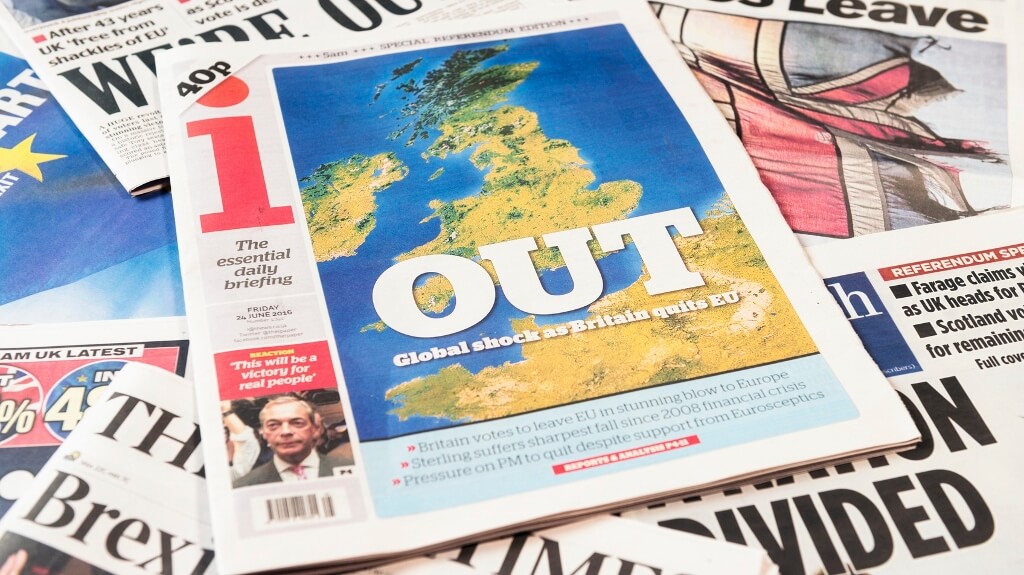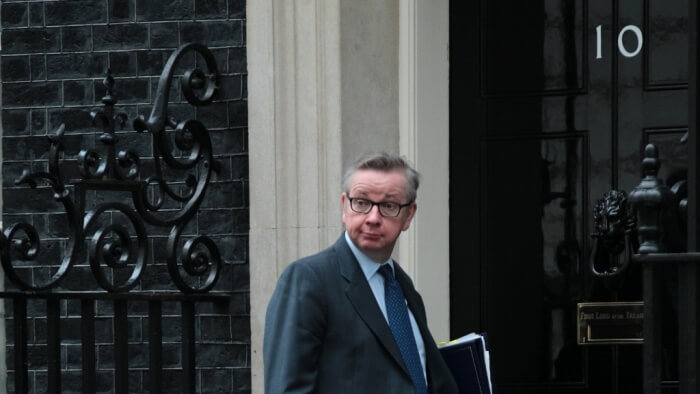As the dust settles on Phase One of Brexit, what lessons can be gleaned from the Out camp's surprise victory?
3 Leadership Lessons From Brexit
As the dust settles on Phase One of Brexit, what lessons can be gleaned from the Out camp's surprise victory?

Britain’s decision to leave the EU was arguably the biggest political upset in a generation, as on June 24th this year, the nation woke to a result no one, not even the bookies, had anticipated.
If anything could overshadow the news of the historic leave vote, it was the raft of resignations and scandals that swiftly followed. Over a month on, the effects are still reverberating around Westminster but as the dust slowly starts to settle, what lessons can business leaders learn from the fallout?
1. The power of emotion
Much has been made of the advertising and marketing agencies’ failure to correctly gauge public opinion in the run up to the referendum. Saatchi & Saatchi even went as far as releasing the ads that had been left on the cutting room floor, a sort of ode to what may have been if only they’d used the right creative.
At the end of the day however, none of this matters, as the Leave campaign staked out the persuasive emotional position from the get go, a stance which would go on to characterise what some called their ‘post-truth’ politics.
Where Remain tried to deliver cold facts, Leave fired up a fervour that quietly gained momentum under the radar. Whilst successful organisations require logic and a grounding in numbers, the business lesson speaks for itself: don’t underestimate the power of emotional persuasion.
2. Stand and deliver
If ever there was a symbol of back-tracking on promises, the now infamous Battle Bus is it. Emblazoned with the much debated figure of £350million that would be better placed serving the NHS than the EU, its journey up and down the country eventually forced the exasperated UK Statistics Authority to come out and say conclusively that the figure was not to be trusted.
Nonetheless, it still came as a surprise when Iain Duncan Smith backtracked on national TV, refuting he’d ever made such a statement during the course of the referendum and therefore didn’t constitute a broken promise.
Nigel Farage said the figure was a ‘mistake’ and Chris Grayling dubbed it ‘an aspiration’. The British public had grown used to political manoeuvrings; a large red bus emblazoned with what now appears to be a lie is another matter.
What the Leave campaign should have realised, from their own campaign if nothing else, is that people want to be spoken to plainly. No matter how well-crafted the explanation was, all the public heard was that the £350million figure was not true, which understandably left a bitter taste for many voters, and united Remainers and Leavers alike in their outrage.
Learn to speak plainly and avoid jargon; your customers will only remember if you deliver on the top line, and it will be your neck on the line if you don’t.
3. Importance of feedback loop
Changing one part of the system – be political, corporate or environmental – can have a domino effect of collapse and call for the need to rebuild in unpredictable ways. Despite the fact that no one thought the Leave vote was going to triumph, there was still a sense of received wisdom as to what would happen.
Gove, for one, was definitely not running, saying repeatedly of himself that he “didn’t have what it takes” to be Prime Minister. Article 50 would be triggered post-haste. No one expected that just a month on, we would be questioning whether we’d actually get the ball rolling before 2019.
Certainly, no one expected Theresa May, an advocate for Remain, to be Prime Minister. Yet the swiftness with which she moved once appointed as Tory leader demonstrated that she understood the interdependency of risks, and had mentally prepared a contingency plan to help win over the party.
In being prepared for the unexpected, she was able to quickly assume a voice of authority and stability amidst the prevailing uncertainty.
On a positive note however, chaos has always been an enabler for disruption, and presents an opportunity that all businesses should grasp with both hands. It’s undeniable we’re witnessing a time of momentous change.
This has always been the case with times of turmoil; there will be those who come out on top, by virtue of their inventiveness and determination. During the Great Depression, whilst other consumer goods’ companies slashed their advertising budgets, Procter & Gamble ramped up their spending and created the world’s very first ‘soap opera’ to promote, you guessed it, their soap.
Not only did they take a chance on new technology, commercial radio, but they understood that if they created something that was bigger than their product, their customer would buy into it. If there’s one thing that Brexit and other times of uncertainty have taught us, it’s that chaos is a leveller – anyone can step up and command attention. And so it should be.
Ben Richards is director of consultancy at Radley Yeldar.
Thanks for signing up to Minutehack alerts.
Brilliant editorials heading your way soon.
Okay, Thanks!




